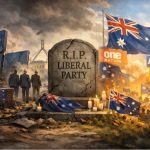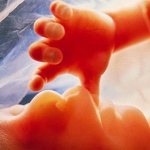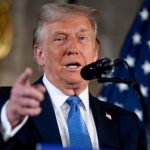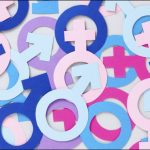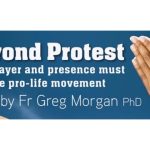by Father Pius Mary Noonan OSB PhD
Notre Dame Priory in Tasmania
June 30th 2024
Sixth Sunday after Pentecost
In today’s Gospel we see our blessed Lord feeding several thousand people with a few loaves of bread and a few fish. The miraculous multiplication of course prefigured the Most Holy Eucharist in which the Lord continues to nourish generations of faithful with His most precious Body. Just one detail of this Gospel is going to hold our attention today, however, namely the fact that Our Lord uses the apostles to perform the miracle. In one of the other accounts of the miracle, Jesus says to the disciples: You give them to eat. And in all accounts, He has them make the people sit in groups and distribute the multiplied loaves and fish to them.
What this is about is the apostolic ministry. God comes to us through a mediation, that is, through the men He puts at the head of His Church. Just yesterday we celebrated the great feast of the holy apostles Peter and Paul, the fathers of the Church of Rome. It’s an opportunity for us to reflect upon the role of the apostles, and in particular of Peter in the Church.
The Gospel for yesterday’s feast is taken from St Matthew ch. 16. First of all, the Lord questions His disciples as to who people think He is. Some say one of the prophets, or John the Baptist. At Jesus’ question: But you, who do you say that I am? Simon Peter speaks out and makes the first profession of faith of the Church: Thou are the Christ, the Son of the Living God. Our Lord then proceeds to make him the Rock on which He will build the Church and against which the gates of hell will never prevail. He gives Peter the power to bind and to loose, adding that what Peter does on earth Christ will ratify in Heaven.
This foundational text is to be read in unison with two others. In Luke’s account of the Last Supper, he says to Peter, using his first name, as if to remind him of his weakness: “Simon, Simon, behold, Satan has demanded to have you (plural), that he might sift you (plural) like wheat, but I have prayed for you (singular) that your (singular) faith may not fail. And when you have turned again, strengthen your brothers.” (Lk 22: 31-33)
The third text is taken from John 21, on the shore of the Lake of Tiberias when Our Lord has Peter make amends for his triple denial by a triple profession of faith, after which Our Lord each times gives him the commission to feed the lambs and the sheep. Peter is reinstated as the Rock and given the task of feeding the entire flock, lambs and sheep, that is to say, faithful and shepherds alike. Again, his unique role among the apostles is stressed.
The substance of all three of these texts makes it clear that Peter received a very special mission, setting him apart from the other disciples and even from the other apostles. The entirety of the Catholic tradition has acknowledged that the prerogatives granted to Peter have passed to his successors, the bishops of Rome. This is why every Catholic knows that the Pope has a very special place in the life of the Church. If Our Lord wanted one of the apostles to be above the others, if He wanted one of the bishops to be above the others and to have authority over them, it is for one very simple reason. Every group needs a head that actually has authority, and can actually make decisions. Otherwise that body is condemned to endless disputes and confusion.
So what is the role of Peter and his successors? It is twofold: the faith and the discipline of the Church. For today, we will treat of the first of these.
First and most importantly, the Pope’s role is to define dogma, that is to say, to decide what exactly God has revealed to humanity. Anyone who has read anything about Church history knows of the multiple debates that have arisen concerning the meaning of certain words of our Lord in the Gospel. Sacred Scripture clearly does not suffice on its own. To be convinced of this it suffices to read of what happened at the time of the Reformation, when Luther declared the Bible alone to be the teacher of faith and refused the teaching authority of the pope and bishops. In a short time, there were almost as many protestant sects as there were pulpits from which the Bible was preached, for it was impossible to reach a consensus on some of the most fundamental issues. The Bible needs someone who in the end can decide definitively and authoritatively what it means. What did Christ actually mean when He said: This is My Body? While almost all the protestant churches say that he was speaking figuratively, and not literally, the Church through the Popes said that He actually meant wha He said, literally. Another example takes us back to the fifth century. When faced with the errors of Eutyches who denied the double nature in our Lord, Pope St Leo the Great sent a letter to the Patriarch of Constantinople, known as Leo’s Tome to Flavian, and which was read at the council of Chalcedon. Upon hearing the letter, the bishops gathered in council, of one accord, declared: this is the faith of the Church, Peter has spoken by Leo.
By giving the Church a Pope, Christ made sure that all the faithful would know with clarity what He actually taught and what He really meant. This is important, for the truth is necessary for salvation. So, when there is a debate about what we are to believe, the Pope is empowered to give what we call a dogmatic definition of the faith. Such a definition requires extremely strict conditions. What are they?
First of all, it must be a matter of faith or of morals. Why? Because to be saved it is necessary to profess the true faith and to keep the moral law. If we have no way of knowing what we are to believe or how we are to live, or what is good and what is bad, then we would have no way of being saved. Secondly, the pope must speak his mind in his capacity as father and teacher of the entire Church, and he must do so in terms that leave no doubt whatsoever about his intention of binding the consciences of all the faithful. Let’s take a modern example.
When Blessed Pius IX defined the dogma of the Immaculate Conception in 1854, he did so in these terms: “We declare, pronounce, and define that the doctrine which holds that the most Blessed Virgin Mary, in the first instance of her conception, by a singular grace and privilege granted by Almighty God, in view of the merits of Jesus Christ, the Saviour of the human race, was preserved free from all stain of original sin, is a doctrine revealed by God and therefore to be believed firmly and constantly by all the faithful. Hence, if anyone shall dare — which God forbid! — to think otherwise than as has been defined by us, let him know and understand that he is condemned by his own judgment; that he has suffered shipwreck in the faith; that he has separated from the unity of the Church; and that, furthermore, by his own action he incurs the penalties established by law if he should dare to express in words or writing or by any other outward means the errors he thinks in his heart”.
There you have a crystal clear teaching backed up by the warning that to believe otherwise means that you are no longer a Catholic. Now, the wonderful point here is that thanks to the papal prerogative we have absolute certitude in what we believe. We are no longer tossed to and fro upon the waves of this turbulent world. It’s not anybody’s guess what really happened or what God meant. God has spoken with clarity through the Church, and we know it is true, because God cannot be mistaken nor can He fool us. And for that we must be grateful, and that is the purpose of this homily. Having a pope to tell us what we are to believe is not slavery, it is freedom. The slavery lies in being a victim of one’s own judgment in such matters.
One last point for today: when a pope defines a dogma, he binds all the faithful of the Church now and in the future, including those men who will follow him on the throne of Peter, that is to say, he also binds future popes. Hence, every pope, in order to be a Catholic, must profess the entire doctrine of the Catholic Church, under pain of falling under the anathemas pronounced when the dogmas were defined. When we say that a pope cannot bind his successors, we are referring to acts of discipline in the Church, not to dogma. And that brings us to the second prerogative of the popes, about which we will treat next week.




